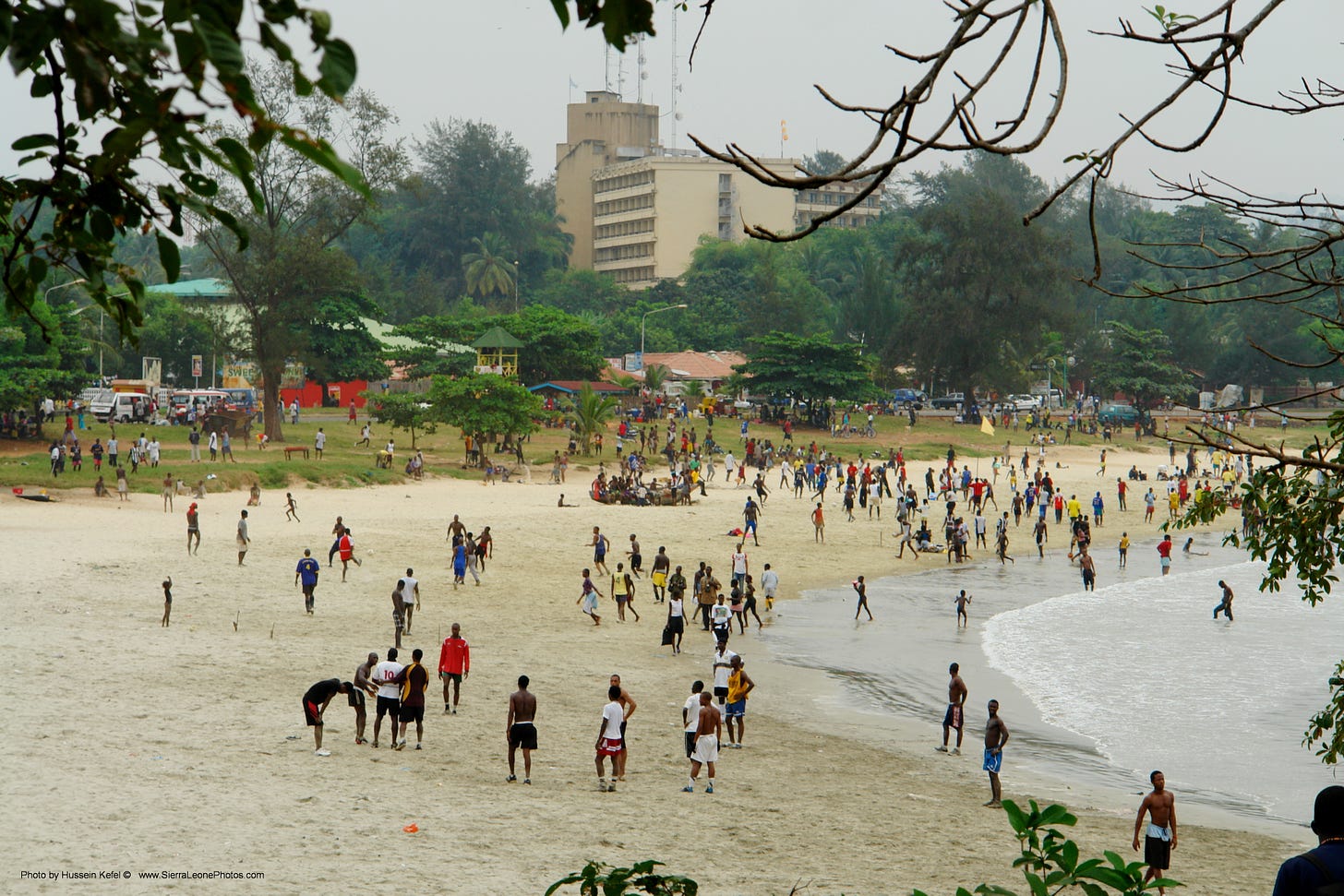🔅 From Internet Woes to Presidential Scandals
East Africa's Undersea Cable Chaos, Madagascar's Bribery Saga, and a $30 Billion Power Partnership
Photo of the Day
Spotlight Stories
East Africa's Internet Woes: Undersea Cable Chaos Strikes Again!
Instead of smooth streaming on Sunday, internet users across East Africa were faced with the spinning wheel of doom: from Kenya to Tanzania, Rwanda to Uganda, internet users have been venting their frustrations as service providers scramble to fix the patchy connectivity.
According to industry experts, the culprit behind this digital debacle is a set of misbehaving undersea cables that connect the region to the rest of the world via South Africa.
Tanzania seems to have drawn the shortest straw in this connectivity debacle. Cloudflare Radar, the internet's watchful eye, reported that the country's traffic plummeted to a mere 30% of expected levels. The Citizen newspaper even went as far as calling it an "internet blackout."
Amidst the digital chaos, service providers across the region have been fielding queries from exasperated customers on X (formerly known as Twitter). Companies like Airtel, Safaricom, and MTN are all chiming in to assure users that they're working on the "network issue."
A Tangled Web of Cables:
So, what exactly caused this undersea cable calamity? According to Roberts, it's not some grand act of sabotage. Instead, it's just an unhappy coincidence that two cables decided to take a break at the same time.
One of the affected cables, known as Eassy, was cut earlier on Sunday, about 45km north of Durban, South Africa. Another cable followed suit, leaving East Africa's internet in a tangled mess.
Déjà Vu:
If this story sounds familiar, that's because it is. Back in March, countries like South Africa, Nigeria, Ivory Coast, and Ghana experienced similar widespread outages, all thanks to cable failures.
As service providers work to reroute data through other cables linking East Africa to Europe, the region's internet should gradually improve. But with many big companies housing their data centers in South Africa, the damage to the vital Eassy link has left a significant impact.
Madagascar's Presidential Scandal: Bribes, and Jail Time

Malagasy President Andry Rajoelina's former chief of staff, Romy Andrianarisoa, has been sentenced to three and a half years in a London jail for attempting to extract substantial bribes from precious stone miner Gemfields.
According to prosecutors, 47-year-old Andrianarisoa and her associate, Philippe Tabuteau, sought to leverage her position and proximity to President Rajoelina to help Gemfields expand its business in Madagascar.
But this assistance came with a hefty price tag: nearly $300,000 and a 5% stake in a Gemfields company mine, valued at around $4 million.
The Sting: Rubies, Bribes, and Undercover Agents
Gemfields, the owner of the iconic Faberge jewellery brand, smelled something fishy and approached Britain's National Crime Agency (NCA) with their concerns. The NCA deployed an undercover officer, known only as "Charles," to pose as a consultant negotiating on Gemfields' behalf.
The duo's alleged scheme came crashing down when they were arrested in a London hotel last year, each charged with one count of bribery. President Rajoelina wasted no time in giving Andrianarisoa the boot, sacking her with immediate effect.
While Tabuteau pleaded guilty, Andrianarisoa maintained her innocence, claiming she wanted Gemfields to get a mining licence for the benefit of Madagascar. "I never requested any payment for myself," she told jurors during her trial at Southwark Crown Court in February.
Despite her protestations, Andrianarisoa was found guilty and sentenced alongside Tabuteau on Friday.
Andrianarisoa will spend the next three and a half years behind bars, while Tabuteau was sentenced to two years and three months.
World Bank and AfDB Join Forces to Electrify 300 Million Lives
The World Bank and the African Development Bank (AfDB) have teamed up to bring electricity to 300 million people across Africa by 2030.
The World Bank, not content with being just a bank, has committed to connecting 250 million people to electricity through renewable energy systems. Meanwhile, the AfDB, not to be outdone, will support an additional 50 million people.
The investment is estimated to be $30 billion in public sector investment.
The World Bank, which is set to provide $20 billion for the project says that African governments will need to establish policies that attract private investment and reform their utilities.
This partnership will have a big impact on Africa, where access to electricity is still a luxury for many. With reliable power, businesses can grow, schools can thrive, and healthcare can improve.
Food for Thought
“A bird that flies off the earth and lands on an anthill is still on the ground."
— Igbo Proverb





